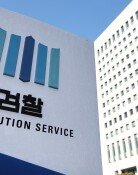[Editorial] Disclosure of the Diplomatic Documents Should Provide Opportunity to Correct Self-degrading Historical Viewpoint
[Editorial] Disclosure of the Diplomatic Documents Should Provide Opportunity to Correct Self-degrading Historical Viewpoint
Posted August. 27, 2005 03:01,
The documents disclosed yesterday regarding Korea-Japan summits give a lesson that one should not judge history with a unilateral yardstick. The documents amounting to 156 books of 14-year talks (with the exception of the five disclosed in January) that show how the Korea-Japan negotiations between 1951 and 1965 were not a result of diplomacy of subjugation, as some critics argue, but rather of neck-and-neck diplomatic war. One expert who reviewed them all said, I used to think it was diplomacy of subjugation, but it was found that the then Korean government did what it could do best at the time in terms of national interest.
It is true that there has been one-sided criticism toward the Korea-Japan negotiations between 1951 and 1965 along with the atmosphere to condemn the Park Jung-hees regime. Behind it, there is the progressive camps bias, which has denied the achievements of the industrialization-leading camp that says, The ROK government is a pro-U.S. and pro-Japanese regime, which should not have been born in the first place. However, this is self-degrading, excessively distorting the history of Korea, and highlighting only the negative aspects.
The disclosed documents clearly show that Koreas failing to acquire the right as a victor in the war at the 1951 San Francisco Ganghwa Treaty was the original limit to receiving war reparations. At that time, Japan was willing to give $50 million as congratulatory payments for liberation, saying, Koreas annexation to Japan was legal. Then, Koreas successful effort to receive a total of $600 million from Japan for grants and funds as well as private loans was a result of insistent diplomacy. Documents on the Vietnam War also disclosed yesterday evaluated that the economic effects of $5 billion by Korean military forces participation in the war paved the way for Korea economic development.
This empirically points out that if history is judged in a biased way without keeping any sort of balance, one might fall into big traps. That is why the historical viewpoint of self-degradation needs to change.
The documents also suggest what the two governments need to do right now. The Japanese government needs to be active in compensating for the victims of anti-humanitarian crimes such as comfort women, ethnic Koreas in Sakhalin, and victims of the atomic bomb, who were excluded from the list during the negotiation settlement. The Korean government must be quick to compensate for the victims of forced labor who were not properly compensated as the government used the money for a request for economic development.




![“한동훈, 정치생명 걸고 무소속 출마해 평가받는 것 고려할만”[정치를 부탁해]](https://dimg.donga.com/c/138/175/90/1/wps/NEWS/IMAGE/2026/01/19/133186982.1.jpg)


